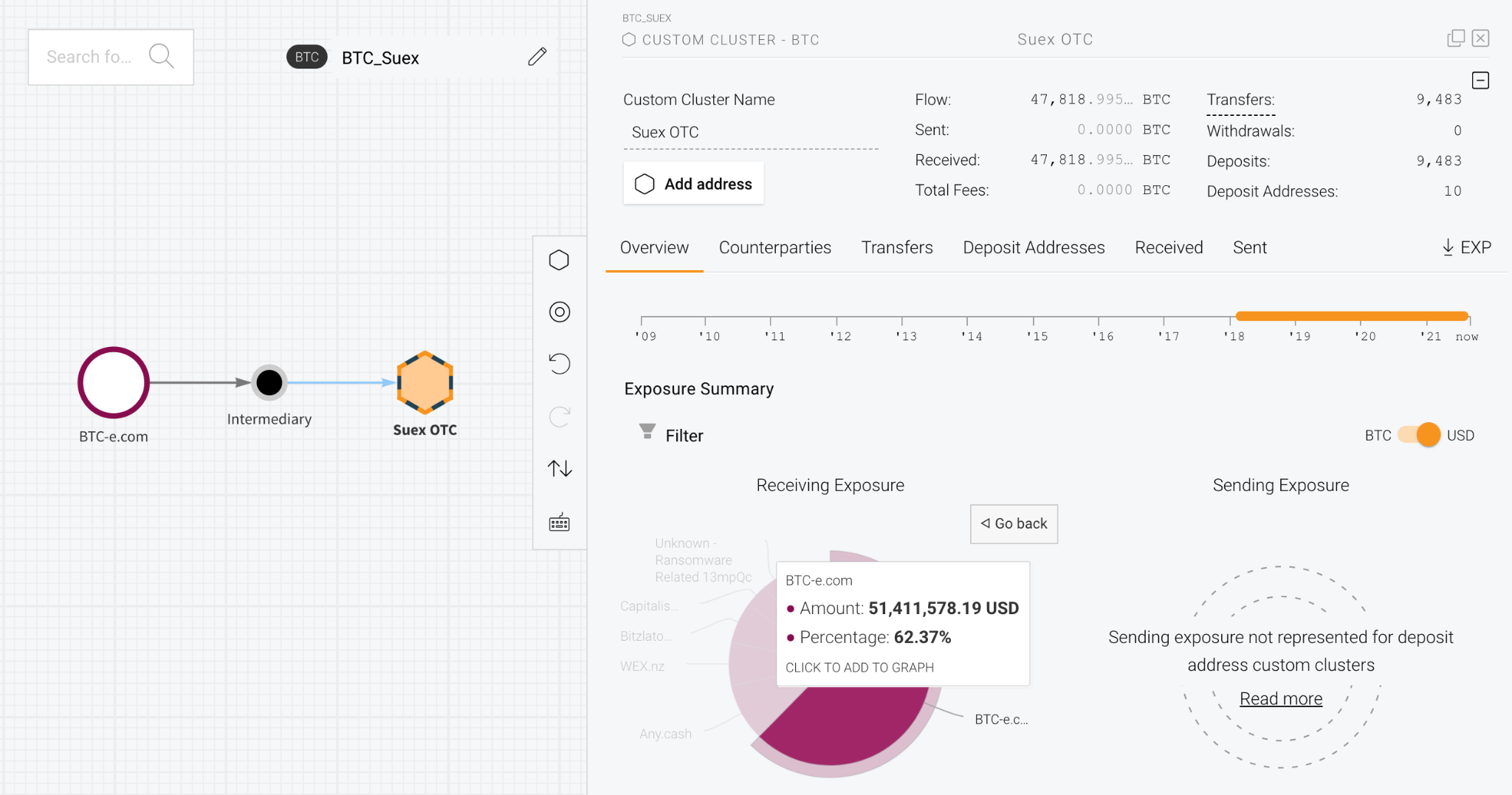Teacher
Professional
- Messages
- 2,669
- Reaction score
- 819
- Points
- 113

The Treasury Department and the US Treasury announced the imposition of sanctions against the cryptocurrency exchanger Suex, registered in the Czech Republic, although, according to Chainalysis, Suex 's management is located in Moscow and St. Petersburg, and the company has offices in other regions of Russia and the Middle East.

Now the assets of the exchanger in the United States are frozen, and American companies are prohibited from doing business with Suex under the threat of fines and sanctions. The Treasury has published a list of 25 cryptocurrency wallets that Suex uses for daily transactions.
The decision to impose sanctions on the Suex came after the Joe Biden administration last week said it was ready to crack down on the middlemen that power the ransomware ecosystem, and cryptocurrency exchanges are at the top of the list.
Suex
It looks like Suex was created precisely to help cybercriminals launder money. Although the exchanger has been operating for over three years, it has never attracted attention or moved really large amounts. As a result, Suex did not even make it to the Coinmarketcap rating.
At the same time, according to the statements of the American authorities, in the period from 2018 to 2021, Suex helped ransomware and other cybercriminals to launder more than $ 160 million, working with the operators of at least eight ransomware. In total, approximately 40% of all transactions involved stolen funds.
Chainalysis writes that since its launch in February 2018, Suex has received more than $ 481 million in Bitcoin alone, including funds raised from cybercriminals:
- nearly $ 13 million from ransomware operators including Ryuk, Conti, Maze, and more;
- more than 24 million dollars from cryptocurrency scammers, including the organizers of the famous Finiko pyramid, due to which victims in Russia and Ukraine lost about a billion dollars;
- more than $ 20 million from darknet marketplaces (mainly from Hydra in Russia);
- more than $ 50 million from addresses associated with the BTC-e exchange, which was closed by the authorities in 2017.

“It is interesting that transfers from BTC-e to Suex took place after the closure of BTC-e, and some of them took place quite recently, this year. We believe Suex may have been processing these transfers on behalf of BTC-e administrators, partners, or former users trying to get rid of the cryptocurrency stuck on the exchange. Our analysis of Suex blockchain activity shows that [the exchanger] exchanged cryptocurrencies for cash on behalf of users at its branches in Moscow and St. Petersburg, and possibly elsewhere, "the Chainalysis report says.

xakep.ru

